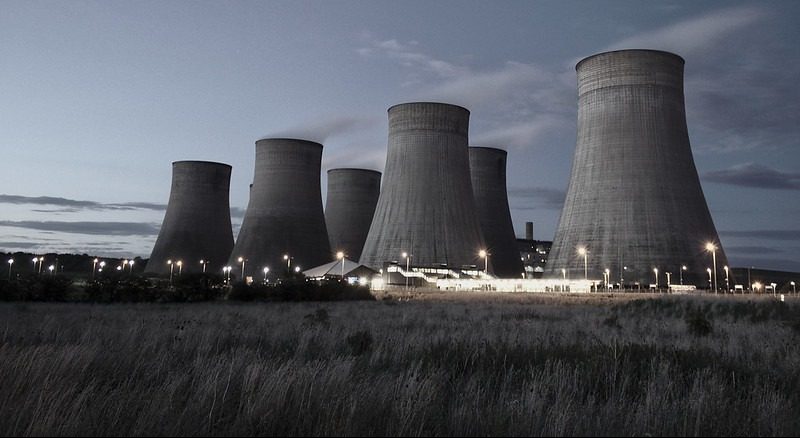The end of the coal power party: after 142 years, the UK has finally moved on from coal. And not a moment too soon.
In its 300-million-year history, coal has obtained a plethora of uses, and not just the ones you’d think. In the tradition of British theatre, for instance, it is considered good luck to throw a lump of coal off the stage of a new venue to ensure the theatre’s success, whilst Scottish Hogmanay customs dictate the new year must be greeted with a gift of coal from a ‘handsome stranger’. Coal and its by-products can be found in a bewildering array of products ranging from soap, to fishing rods, to aspirin, and even to kidney dialysis machines. It’s also Santa’s gift of choice for misbehaved children. Yet, astonishingly, as of 30 September, there’s one thing British coal won’t ever be used for again: generating electricity.
In 1925, coal power accounted for 98.8% of the country’s energy generation.
In what represents a genuinely seismic step, the UK has become the first major global economy to move on entirely from coal power with the closure of Ratcliffe-on-Soar, the last coal power plant left in Britain. 142 years after the first such facility opened here in 1882, staff at Ratcliffe gathered in the canteen to watch a livestream of the control room, as the facility’s generator units were switched off forever. 170 people remain employed by the plant — a hundred years ago, the number of workers in the UK coal industry stood at almost 1.2 million. The sheer scale of change experienced by the UK’s energy sector is, by any stretch, colossal: in 1925, coal power accounted for 98.8% of the country’s energy generation. Fast-forward a hundred years later, and the practice will be gone in its entirety.
In many ways, it’s fitting that the country who pioneered the Industrial Revolution off the back of coal power should be the state that now leads the way in the jump to a coal-free future. And for a nation so frequently criticised for its failures on the world stage, it’s impossible to over-emphasise just how ahead of the curve the UK is on the issues of green energy. Britain is the fifth country in Europe to exit coal: Belgium became the first to achieve this in 2016, but it’s an entirely valid point that it would take the energy generation of three Belgiums to meet Britain’s annual energy consumption. They were followed in 2020 by Austria and Sweden, and in 2021 by Portugal. A sixth nation, Slovakia, has also pledged to be coal-free by this year, although their final progress appears unclear.
The country’s reliance on natural gas will have to be expunged at a rate twice as fast as the campaign against coal, experts have warned.
The UK’s move has only been made possible through a relentless pursuit of green energy policies, that meant that when the end came for coal, it came quick: it was only 2015 when then-Energy Secretary Amber Rudd announced her country’s intent to jettison coal power by 2025. Two notably aggressive policies — a carbon pricing system that made coal more expensive than gas, and emissions limits heavily restricting the opening hours for coal plants — made the UK a rapidly hostile place for coal power generation. In 2017, the country experienced its first ever coal-free days off the back of vast expansions in renewable energy. This included what current Shadow Energy Secretary Claire Coutinho has championed as the most construction of offshore wind farms for any country besides China. In the modern day, renewable power sources comprise over half of the country’s energy generation, with the other half sustained largely by natural gas production. Uncertainty over the security of this sector during the start of the Russo-Ukraine War briefly sparked fears of a return to coal power, with the shutdown of several British stations including Ratcliffe delayed by several years. Yet, although other countries like Germany were forced to reopen coal plants to keep the lights on, the UK avoided this fate, and has reached the pivotal shut-down milestone a year ahead of 2015’s schedule.
The future is no less ambitious: Britain’s new government is committed to achieving net zero by 2030, a goal for which the necessary work has been described as “Herculean” by Chris Stark, the man in charge of the project. The country’s reliance on natural gas will have to be expunged at a rate twice as fast as the campaign against coal, experts have warned. The keys to success will lie in the planned creation of vast new offshore wind farms, Hornsea 3 and 4, which will be the largest in Europe once completed, as well as huge investment in solar farms, “mini” nuclear reactors, and even more esoteric proposals like a tidal barrage across the River Mersey. Energy generation has never been so advanced, and arguably so exciting, as right now. But it’s crucial to stop and pause to look back on the immensity of what came to an end on 30 September, when the UK finally came of-age and said goodbye, at last, to coal power.

Comments